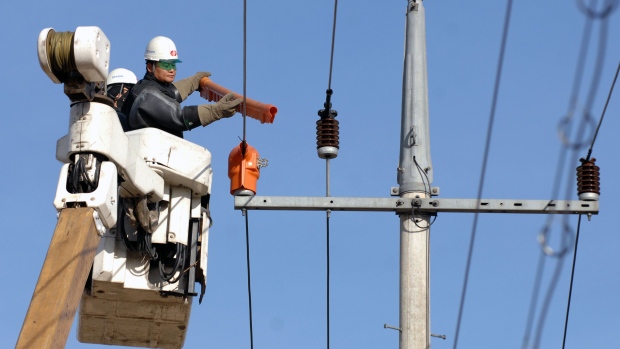Sep 20, 2023
Korea’s Biggest Utility Wants Power Price Hikes to Avoid Crisis
, Bloomberg News

(Bloomberg) -- Korea Electric Power Corp. is facing an “unprecedented financial crisis,” and a normalization of power prices is “urgently needed,” the utility’s new chief executive said.
“Debt issuance has reached its limits,” Kim Dong-cheol said in a speech at his inauguration on Wednesday. “The more debt Kepco incurs, the more its creditworthiness will be downgraded and the higher the borrowing rates will be, accelerating the pace of its collapse,” he said, according to a transcript.
State-owned Kepco, which supplies about 70% of South Korea’s electricity, still relies heavily on imported fossil fuels and struggled with rising costs for coal and liquefied natural gas following Russia’s invasion of Ukraine. Seoul, meanwhile, has been reluctant to raise electricity prices too much as it tries to avoid spurring inflation.
Read Also: Indebted Kepco Faces Lower Price Hike as Korea Shields Consumers
The utility’s debt is 201 trillion won ($151 billion), which is around 30% of the South Korean government’s annual budget, said Kim, a 68-year-old former lawmaker. “Even if Kepco spent its entire annual revenue in three years, it would not be able to repay it.”
Kim said Kepco must transform itself to rely less on domestic electricity sales over the medium- to long-term, and that it should expand more into renewable energy including offshore wind. He pledged the company’s clean energy business would be managed by an independent entity, with a separate accounting system.
Restructuring Plan
Kepco responded to its worsening predicament last year by issuing a record amount of bonds, but that triggered a spike in yields and has reduced its ability to sell more. It also announced a restructuring plan including asset sales and cutting costs in May.
Net bond issuance will be “very minimal” for the rest of the year, said Park Woo Gun, Kepco’s head of finance and accounting. Instead, the utility was considering other borrowing options such as commercial paper and bank loans, he said in an interview.
South Korean Prime Minister Han Duck-soo said this month that an adjustment to electricity charges should be “prudently considered,” when commenting on Kepco’s troubles, according to a report in Yonhap News.
It’s likely that the government will “prop Kepco up,” but that will expose Seoul to financial risk if it allows it to get into more debt while not decarbonizing the grid, Christina Ng, debt markets research and stakeholder engagement leader at the Institute for Energy Economics and Financial Analysis. Kepco risks going into a “death spiral,” she said in comments made before Kim’s speech.
(Updates with comments from Kepco’s head of finance and accounting from 7th paragraph.)
©2023 Bloomberg L.P.






